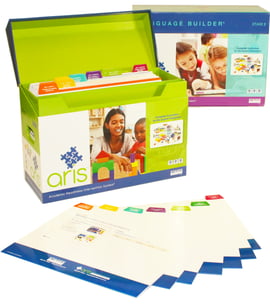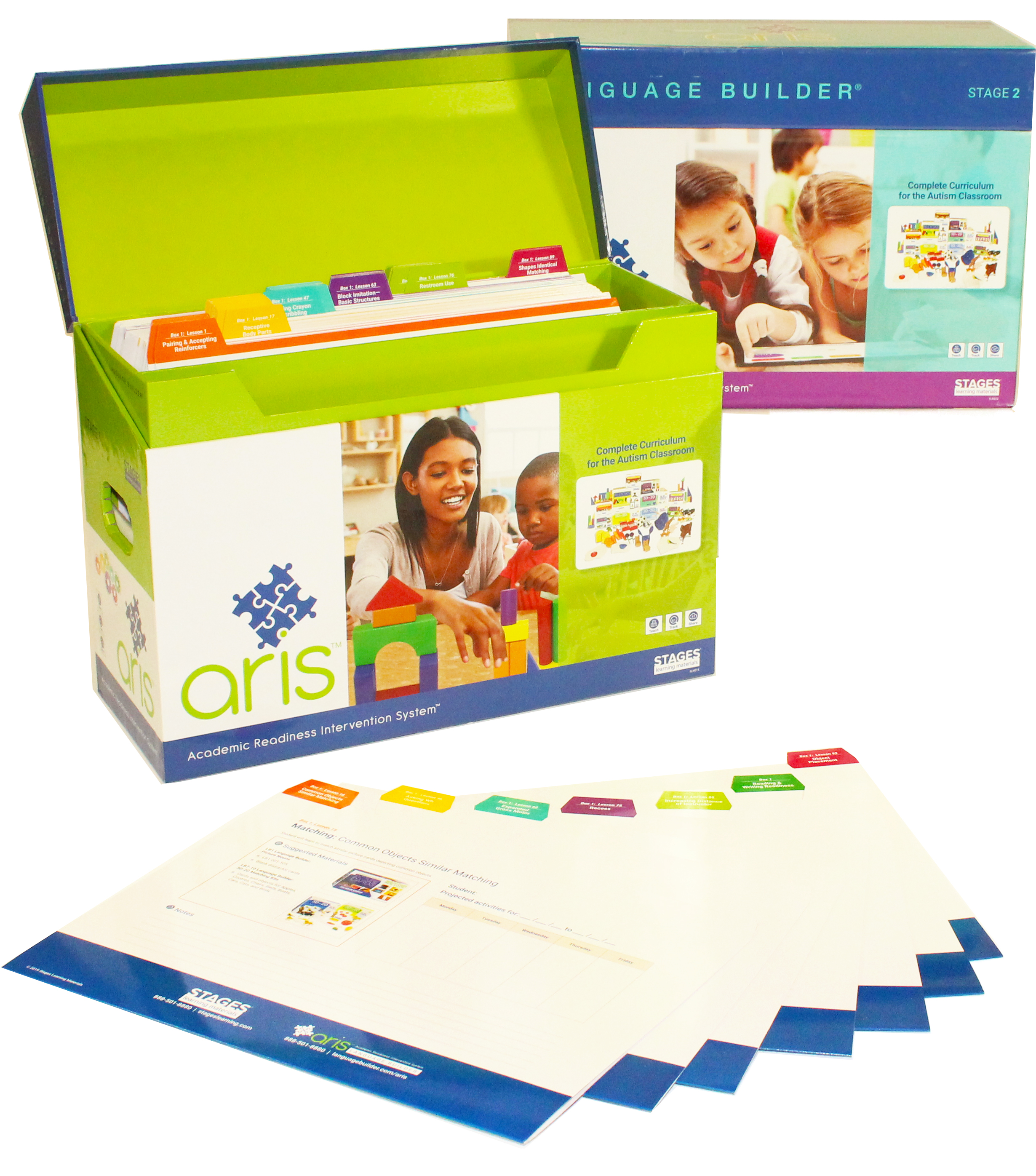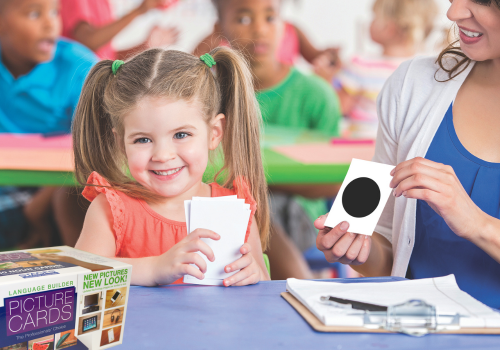How ARIS Supports Social Emotional Learning and Whole Child Development for Students with Autism
Social-Emotional Learning (SEL) and the whole child approach have huge implications for child development and successful learning for all children of all ages, but SEL and whole child are especially critical for teaching children with autism.
SEL is defined by the Collaborative for Academic, Social, and Emotional Learning (CASEL) as "the process through which all young people and adults acquire and apply the knowledge, skills, and attitudes to develop healthy identities, manage emotions and achieve personal and collective goals, feel and show empathy for others, establish and maintain supportive relationships, and make responsible and caring decisions."
The whole child approach to learning prioritizes the complete developmental needs of a child to make sure the child can reach their full potential. Evidence based strategies for whole child development include creating relationship-centered learning environments, using curriculum that embeds a whole child approach, instruction and assessment focused on deep learning experiences, providing integrated student supports, and helping educators learn about —and incorporate —whole child practices in their teaching.
Policymakers and practitioners increasingly recognize SEL, along with incorporating whole child development strategies, as an essential—though often lacking—component of formal schooling. As interest in SEL expands, new research clarifies our understanding of students’ social and emotional development and its strong connection to academic learning.
The Connection Between SEL and Whole Child Approaches
SEL is tied to developing the “whole child” by understanding that in order to access the educational content, we must also consider and develop students’ social-emotional skills. Nationwide, school districts and research confirm the link between SEL and academic achievement. Schools that holistically develop students’ SEL skills see increased graduation rates, higher academic performance, and improved mental and physical health.
Specifically, research shows that SEL that is embedded into curriculum and instruction can be beneficial for all students, and especially beneficial for children with autism. Many students with autism may have difficulty with social cognition skills such as self-awareness, self-management, social awareness, emotional health, and well-being. Research shows that if students with autism are not able to develop the appropriate social cognition skills, then their post-school outcomes can be less successful and can include more social isolation, unemployment, or in some cases, mental health challenges.
SEL and Whole Child Development within ARIS
 The Language Builder: Academic Readiness Intervention System (ARIS) is specifically designed for students with autism. It is anchored in the principles of Applied Behavior Analysis (ABA) and SEL/whole child development. ARIS provides students with foundational lessons to support their learning and early development of language, motor skills, math, functional routines and reading and writing. ARIS also embeds social emotional learning and positive behavior management support that include strategies to decrease negative behaviors and increase positive ones.
The Language Builder: Academic Readiness Intervention System (ARIS) is specifically designed for students with autism. It is anchored in the principles of Applied Behavior Analysis (ABA) and SEL/whole child development. ARIS provides students with foundational lessons to support their learning and early development of language, motor skills, math, functional routines and reading and writing. ARIS also embeds social emotional learning and positive behavior management support that include strategies to decrease negative behaviors and increase positive ones.
The need for curriculum and instruction that emphasizes and embeds social emotional learning is crucial for all students, but especially for students with autism. While many schools and school districts are struggling to include SEL into academic standards, STAGES Learning has recognized this need and carefully designed a new curriculum for autism that emphasizes strategies for ehancing SEL skills for students with autism. The curriculum embeds SEL and whole child approaches within the ARIS content lessons and content categories.
ARIS helps teachers include the five cognitive, affective, and behavioral competencies created by the CASEL into their teaching. ARIS social-emotional components in lessons address self-awareness, self-management, social awareness, relationship skills, and responsible decision making through independent play and work, group play and socialization, and promoting emotional health and well-being.
Each lesson includes a component to help teachers use a whole child approach to learning and to focus on generalizing skills learned in the classroom to environments outside the classroom, facilitate peer-to-peer interaction, and provide students with opportunities to work on their social-emotional skills. ARIS lessons include a focus on behavior management to foster and encourage self-regulation skills and reduce behavioral issues. With the detailed lesson plans and the structured system for record keeping, ARIS makes tracking students’ social-emotional development easy and effective.
Of the seven content categories in ARIS, one content category focuses solely on the development of social-emotional skills, while the rest of the categories have SEL and whole child strategies embedded within the teaching of these early academic skills. The content category that focuses on social-emotional skills provides students with autism essential life skills - skills that will lead to positive post-school outcomes.
As the most complete early intervention program for students with autism, ARIS is designed with research in mind, by recognizing the significant link between social emotional learning and student achievement and embedding practices within the curriculum to promote these skills.
This article is based on resources from CASEL, The Learning Policy Institute and research from the following:
Durlak, J. A., Weissberg, R. P., Dymnicki, A. B., Taylor, R. D., & Schellinger, K. B. (2011). The impact of enhancing students’ social and emotional learning: A meta-analysis of school-based universal interventions. Child Development, 82(1), 405–432.
Sauve, J. A., & Schonert-Reichl, K. A. (2019). Creating caring classroom and school communities: Lessons learned from social and emotional learning programs and practices. In J. A. Fredricks, A. L. Reschely, & S. L. Christenson (Eds.), Handbook of student engagement interventions (pp. 279–295). Academic Press.
Sabatino, C., Wiebe, C. (2022). Comprehensive Social Emotional Learning: Embedding Skill Development Program-Wide. In: Piske, F.H.R., Collins, K.H., Arnstein, K.B. (eds) Critical Issues in Servicing Twice Exceptional Students. Springer, Cham. https://doi.org/10.1007/978-3-031-10378-0_10
Newman, J., Dymnicki, A. B., Fergus, E., Weissberg, R. P., & Osher, D. (2018). Social and Emotional Learning Matters. In D. Osher, D. Moroney, & S. L. Williamson (Eds.), Creating safe, equitable, engaging schools: a comprehensive, evidence-based approach to supporting students. Cambridge, Massachusetts: Harvard Education Press.
This article has been updated by Leslie Stebbins.

Madeline Burroughs
Madeline Burroughs is a Specially Designed Instructional Coach at two high schools in Fulton County Schools in Atlanta, GA. In this role, she works to coach special education teachers in providing systematic, specially designed instruction that effectively targets students’ strengths and needs. Madeline received her Master’s degree in Education Policy and Management from Harvard Graduate School of Education in May 2019, and hopes to continue to serve as an advocate for all students with disabilities throughout her career.




